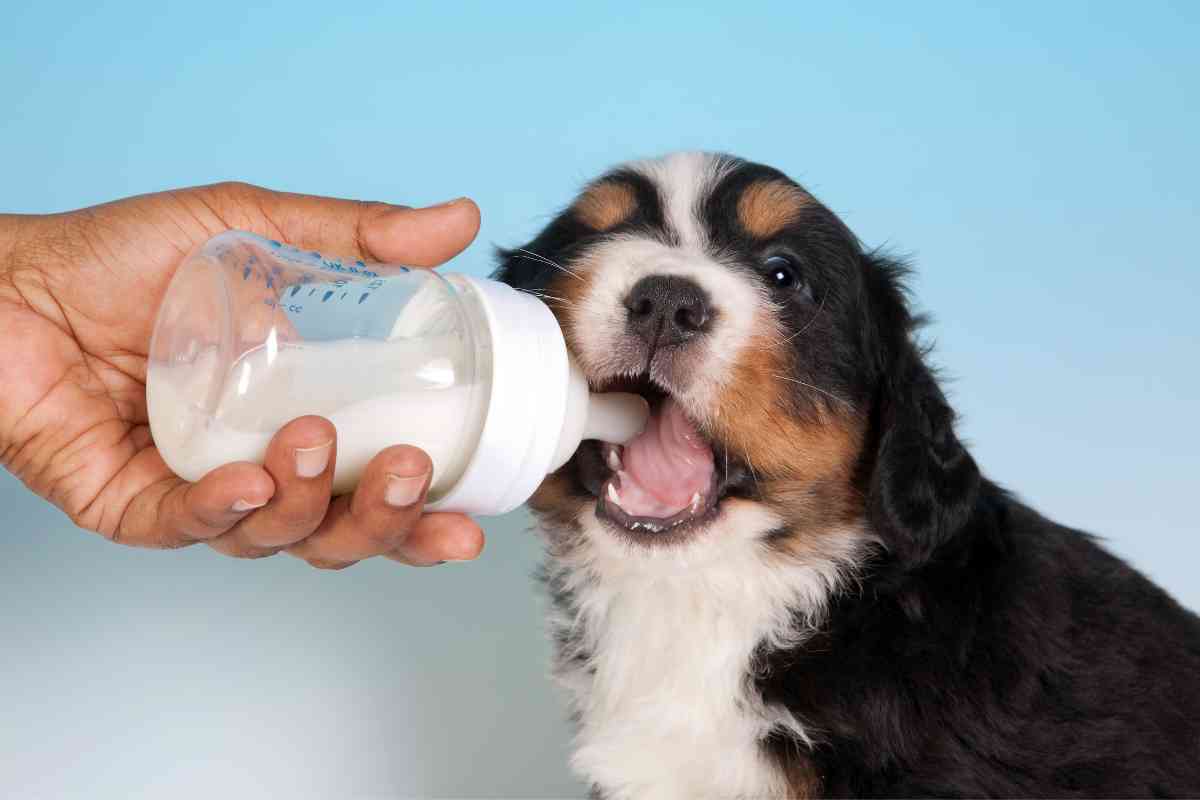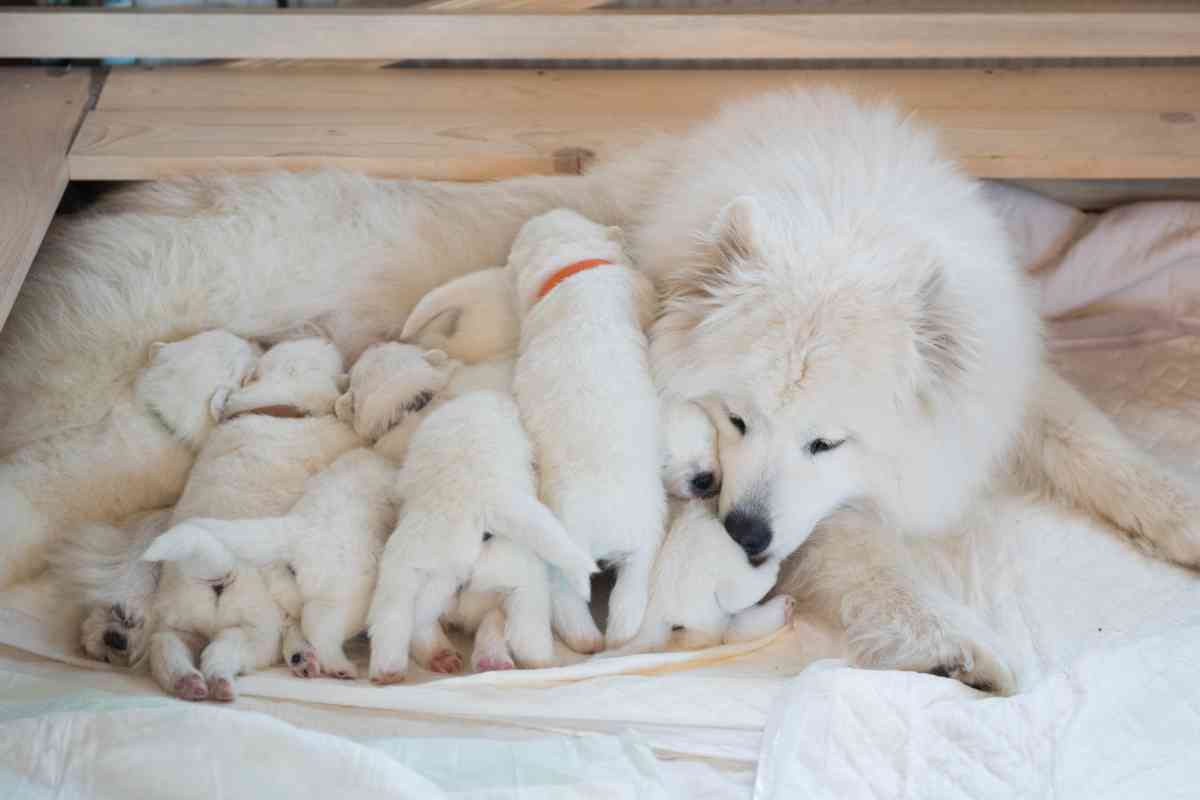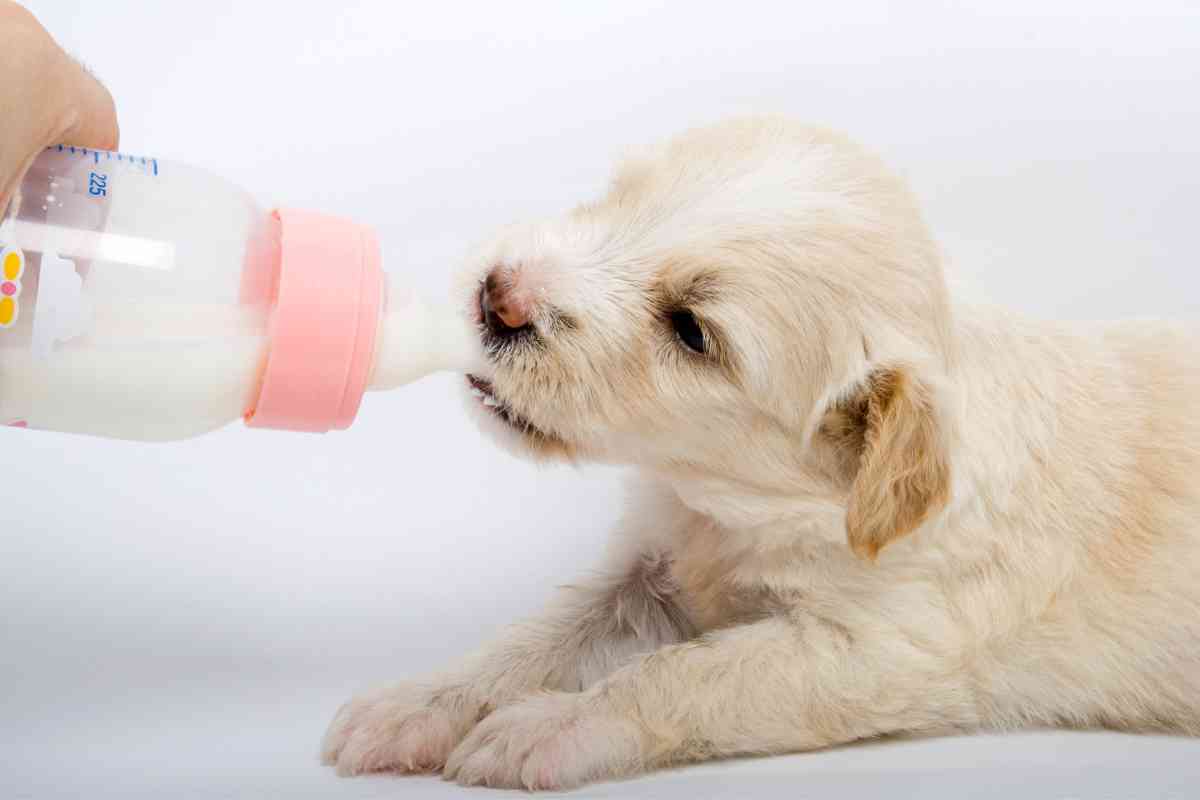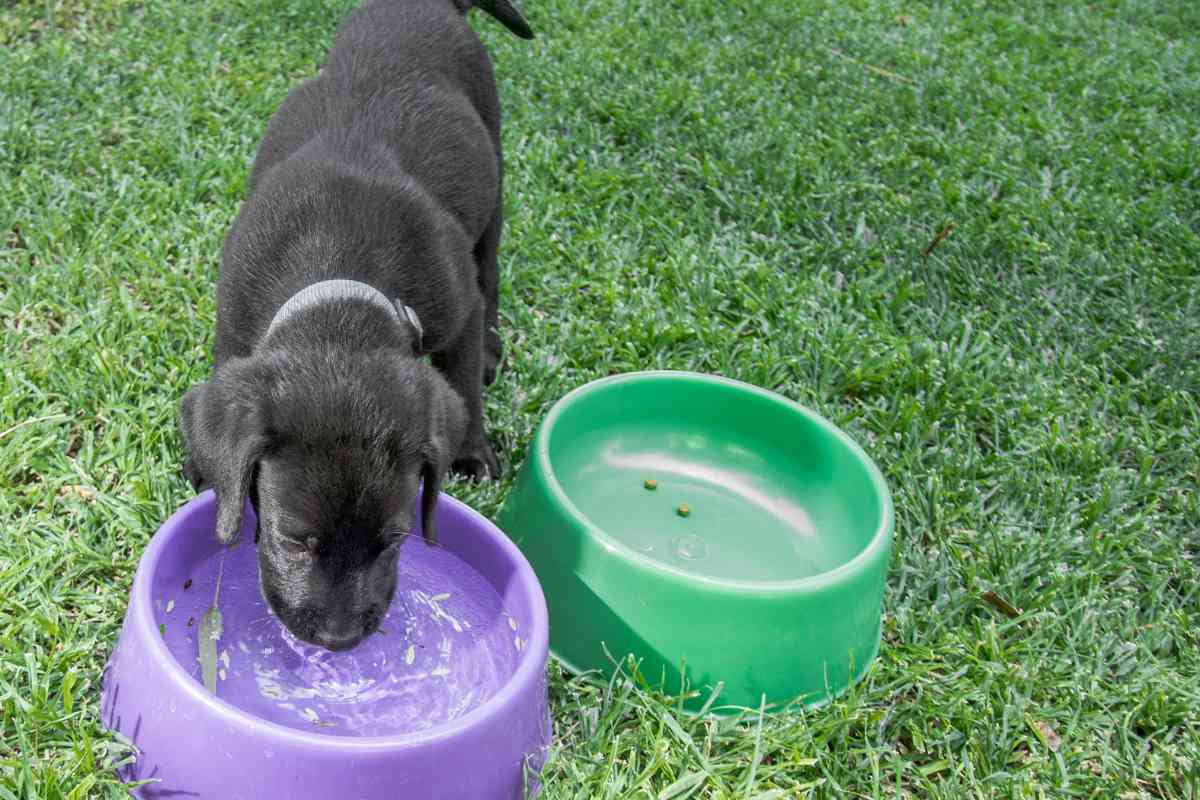What Do Puppies Drink? Proper Hydration for Your Young Dog
When new puppies enter our homes, it’s vital to focus on their nutrition for their growth and health. Proper hydration is a cornerstone of a puppy’s health, balancing between preventing dehydration and overhydration. It’s important to monitor their water quality and understand health concerns linked to hydration levels. The diet of a puppy significantly impacts their water intake.

Related Post! How Soon After Birth Do Puppies Start Drinking Milk?
What Do Puppies Drink?
Initially, a puppy’s main source of nutrition is their mother’s milk. This natural source is rich in vital antibodies and nutrients, catering perfectly to their early dietary needs. If the mother isn’t present, a specially formulated puppy milk replacer should be used.
It’s designed to closely mimic the nutritional profile of canine milk. Importantly, cow’s milk should be avoided for puppies, as it can lead to digestive upset and lacks essential nutrients for them.
As puppies grow, typically around 4 to 6 weeks, they begin transitioning to solid food. During this stage, ensuring puppies have continuous access to fresh water is critical for their overall health. Puppies may not always recognize their need for water, so it’s crucial to encourage hydration. This involves maintaining clean, full, and easily accessible water bowls.
Related Post! How Long Can Dogs Go Without Water?
Key Takeaways:
- Mother’s Milk or Puppy Milk Replacer: Essential for newborn puppies.
- Transition to Solid Food and Water: Begins around 4 to 6 weeks, with water access being vital.
- Monitor Hydration: Key for health and development.
Puppy Hydration and Health
In the initial weeks, puppies rely on their mother’s milk for nutrition and hydration. By 3 to 4 weeks, the shift to solid food starts, and water becomes a crucial part of their diet. Adequate water intake supports their rapid growth and the development of vital organs. Consistently available water is recommended to aid their development, supporting functions like digestion and temperature regulation.
Related Post! How Much Water Should a 13-Week-Old Puppy Drink?
Hydration and Daily Puppy Care
As puppies grow, their hydration needs also increase. A simple rule of thumb is that a puppy requires about half an ounce to one ounce of water per pound of body weight daily. Keeping a close eye on the puppy’s water bowl is essential. Dehydration in puppies can be identified by signs like sunken eyes or excessive panting. Remember, puppies are more active and might need more water during periods of exercise, crate training, and potty training.
Dehydration and Overhydration Risks

Not getting enough water can lead to dehydration, marked by symptoms such as lethargy and loss of appetite. On the flip side, overhydration, though rarer, can result in water intoxication. This is particularly concerning in breeds susceptible to conditions like kidney disease or Cushing’s disease. Signs to watch out for include changes in energy levels and appetite. If these symptoms appear, it’s time to consult a veterinarian.
Maintaining proper hydration is key in preventing illnesses like kidney disease. Diseases such as diabetes and Cushing’s disease can cause polydipsia or excessive thirst. It’s crucial to be alert to signs like excessive thirst and urination, which could signal underlying health issues.
Quality of Drinking Water
The water given to puppies should always be fresh and clean. While tap water is generally fine, using filtered water can reduce exposure to potential bacteria and contaminants. This is especially important for their developing immune systems. Research indicates that exposure to certain contaminants in water can impact animal health. For instance, studies have shown that mouse pups drinking uranium-contaminated water had fewer primordial follicles, highlighting the importance of water quality in development.
Hydration Through Diet
Puppies get initial hydration from their mother’s milk, which is rich in nutrients and water. As they move to solid foods, the moisture content in their diet changes. Here’s how:
- Wet Food: Contains more moisture, aiding in hydration.
- Dry Food: Has less moisture, hence, requires more water intake.

Special attention is needed for puppies on dry food, as it may increase their thirst. Conversely, wet food can aid in hydration. Puppies with specific health issues, like urinary problems or those recovering from illness, might have different hydration needs. Always ensure access to clean, fresh water, and watch for changes in drinking habits, like excessive drinking or avoidance, which could indicate health problems, potentially as severe as cancer.
Hydration Accessories and Training
Using suitable water bowls for the puppy’s breed and development stage can aid proper hydration. Introducing frozen treats can help with hydration and act as positive reinforcement during potty training. Establishing a routine, including regular water breaks after activities, is crucial for bladder control.
Incorporating an understanding of a puppy’s hydration needs into daily care is critical for their health and well-being. By monitoring your puppy’s water intake against their age, size, and activity level, you can ensure their healthy development. For specific guidance, especially when weaning off mother’s milk, resources like “Giving Your Puppy Water For The First Time: A Step-By-Step Guide” can be invaluable.
You may also want to check out my guide to what happens if a puppy is weaned too early.

Conclusion: Essential Hydration for Growing Puppies
Ensuring proper hydration is key as puppies grow into adult dogs. Creative methods like adding ice cubes or chicken broth to water can make hydration enjoyable and nutritious. Be vigilant for signs of hydration issues, such as vomiting, diarrhea, or bloating. Indicators like pale gums, dry nose, and sticky gums can signal dehydration, while excessive salivation and loss of coordination may point to overhydration.
For puppies on dry puppy food, increased water intake is crucial. Conversely, wet food can assist in maintaining good hydration levels. Monitoring your pet’s hydration, especially if they are on certain medications, is essential for their development into healthy adult dogs. By keeping a close eye on your puppy’s water intake and recognizing any unusual symptoms, you ensure their health and well-being as they grow.